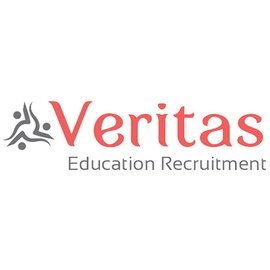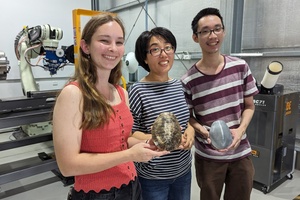In an EducationHQ article published earlier this year, Dr Janet Dutton from Macquarie University provided commentary on how to attract the best and brightest to the teaching profession.
Dutton cited all the main reasons we know from the research why teaching is not a preferred profession option for our ‘best and brightest’; respect, mentoring and PD, support, and long-term commitment to improve all of these.
However, I would like to add that we have a system that acts as a deterrent to our best and brightest school leavers entering our ITE programs.
Unless you are about to apply for entry into an undergraduate ITE program, work in university admissions or are a senior person in the ITE program, you are probably not aware of several prerequisites to entry.
Many of these were set up in the mid-2010s to appease the complaints about universities accepting school leavers with very low ATARs, and in light of the TEMAG Action Now report in 2014.
State governments devised their own set of rules, which vary from state to state. NSW put in place the requirement for a Band 5 (above 80 per cent) in 3 HSC subjects, with one being English, later adding the prerequisite of a Band 4 in Maths.
In Queensland, a school leaver wanting to study to become a primary school teacher must have passed English, Maths and Science to Year 12.
In Victoria, the requirements are lower, with only a 30 (the mean) in English and a pass in any Maths at Year 12 level.
Nobody would argue that we need the best and brightest to work in our schools as teachers, but are these restrictions turning them away?
To complicate matters further, regardless of which state a student undertakes their education degree in, they will be eligible to be employed in any state of Australia and will all be required to teach the Australian Curriculum.
That is a national curriculum, yet each state can set their own rules for entry into the profession.
Students with high ATAR are still not eligible
Let me present some scenarios where being the ‘best and brightest’ won’t meet the prerequisites for entry into the profession.
Take, for example, a NSW student who achieves a good ATAR, let’s say in the over 80 bracket, is unable to be offered a place in an education degree if they haven’t met one of the other criteria depending on the state they are aiming to study in.
For students who live in border towns such as around Queensland and NSW, we have a situation where on one side, they need English, Maths and Science to Year 12 and on the other side, three Band 5s, one in English and one Band 4 in Maths.
Further, in NSW, they don’t differentiate between which Maths course you study for the HSC - a Band 3 in Advanced Maths is not considered the equivalent of a Band 4 in Standard Maths. Confused?
Yes, they are too.
It is possible that a student with an ATAR of 81, a Band 6 in a creative arts subject, a Band 6 and band 5 in Humanities subjects, Band 4 in Standard English and Band 3 in Advanced Maths would not be eligible to study to become a primary school teacher.
You might be thinking that this student should’ve known the requirements for teacher education before choosing their HSC subjects. Surely, they would’ve picked the necessary subjects and ensured they did well.
And here is where we have a problem.
By imposing these subject requirements, are we deterring the school leavers who are very bright and capable, but during Years 11/12 didn’t gel with the teacher, or something happened to stop them from achieving in specific subjects to the prerequisite level?
Some students may have achieved well in Year 10 science but did not want to do Science in Year 11/12.
These might be young people who, in Year 11/12, start working with younger kids at school or in their communities and start to think that they might like to be a primary school teacher.
Yet because of these entry requirements that sit inside the computer system, that is UAC, QTAC and VTAC, they aren’t offered a place in those courses. So, being bright kids with many other options, they choose something else. We are losing them to other professions.
Let’s take a few more examples. The Year 12 student who gets 6 Band 6s and an ATAR of 95? No, they got their high marks without doing Science, so they wouldn’t be able to study to be a primary school teacher in Qld.
The Year 12 student who got an ATAR of 89? No. They didn’t do Science, and their Advanced Maths was only Band 3, so they can’t do primary education in either NSW or Qld.
Both students would get offers into well-respected courses in other disciplines and do well in them. They would make fabulous teachers because of their rapport with kids and their ability to learn.
But they won’t get past the first hurdle unless they know some of the workarounds that individual universities have implemented.
In 2023, the first preference selections for Bachelor of Education (Primary) across Australia were down. But some students might have put it as a second or third choice.
They are interested, but perhaps once they get to filling in the forms (sometime in August for their final year of school), it’s too late because they didn’t do one of the subjects or maybe they weren’t going to do so well, potentially due to their school experience and not due to their ability to understand and teach that subject to others.
Despite the prerequisites in the system of undergraduate entry mandated by the teacher registration organisations in each state, universities have provided alternate pathways, which vary from state to state.
In NSW, most teacher education courses introduced a first year of study with discipline-based courses/units and no professional placement. This degree structure provides all students with the prerequisites they may have missed in years 11/12 during the first year of their teaching degree.
However, the bright student (or committed parent or quality careers advisor) will need to be very committed and do some digging to discover these alternative pathways.
At this critical decision-making point, we are risking the best and brightest students, who might choose to do something else with their lives because other doors are wide open.
It is quite possible that the advertised prerequisites for teacher education programs will put them off even exploring whether they can enter a Bachelor of Education program.
The system is broken
In a piece for The Conversation in 2018, Bahr and Ferreira offer seven reasons for why people no longer want to be teachers.
One of the reasons presented was that “the creativity and relationships aspect” of being a teacher has been eroded due to the emphasis on test scores for reading, writing, and science. This includes the primary years.
Many would argue that the best experience that a child can have in the primary years is one that fills them with wonder and a desire to learn, wanting to go to school and participate and be valued.
These are the sorts of things that don’t necessarily come from having a Band 5 in English or a science subject to Year 12 level.
What we are not seeing in the current university entry system is valuing creativity and the capacity to develop relationships. What we are preferencing is the ability to know content.
We have had the internet in our lives for over 30 years, and we still value teachers’ capacity to be the knowers of all information. We still value young people’s capacity to rote learn to perform in an exam.
Despite numerous reviews into teacher education, we are at a crisis point where we have a chronic teacher shortage that appears not to be improving soon.
It is time we rethink the gatekeeping of university prerequisites set by government bodies.
It is time to consider that perhaps there are more bright kids who would like to become teachers, but getting in the door is more complicated than it should be.














